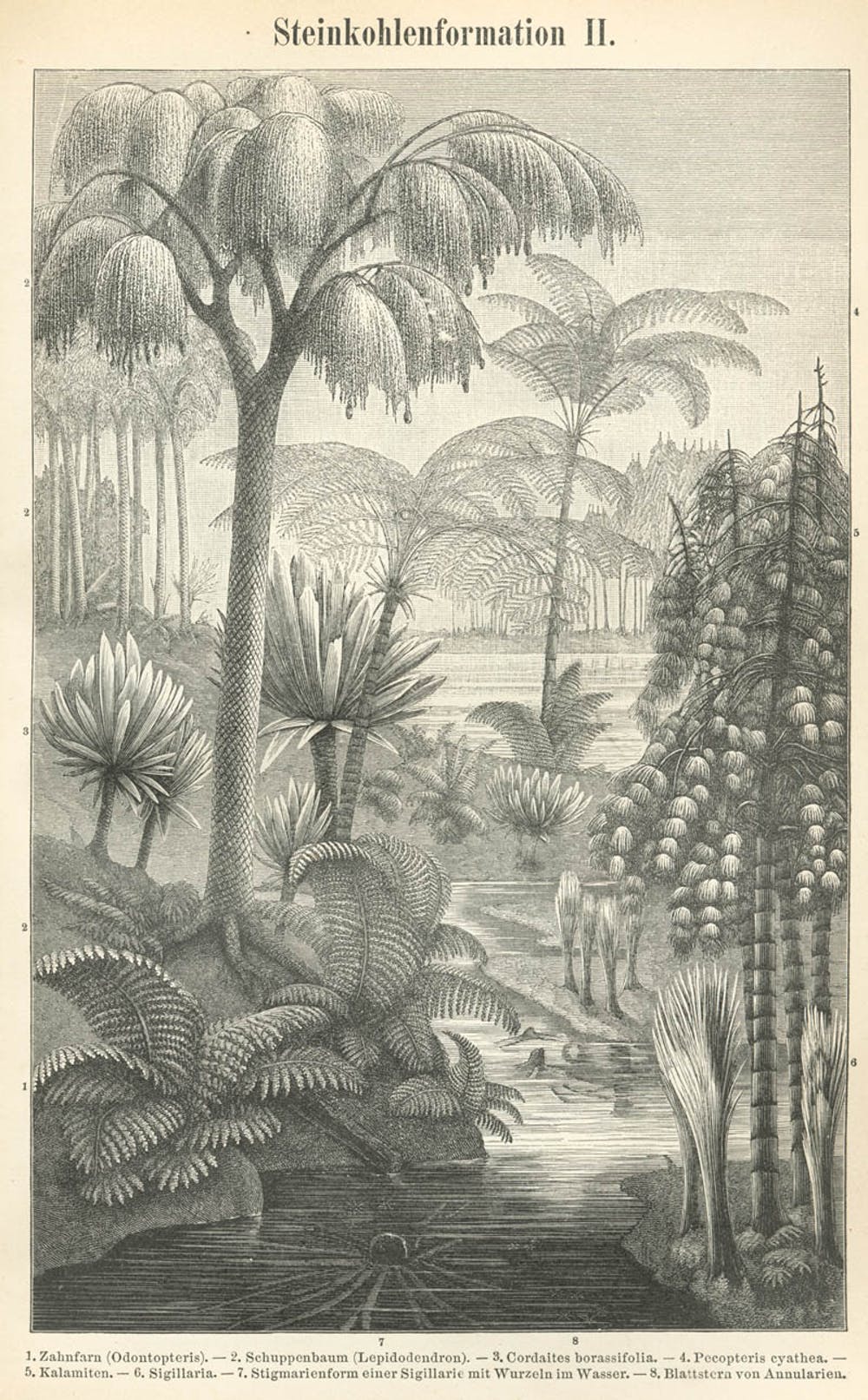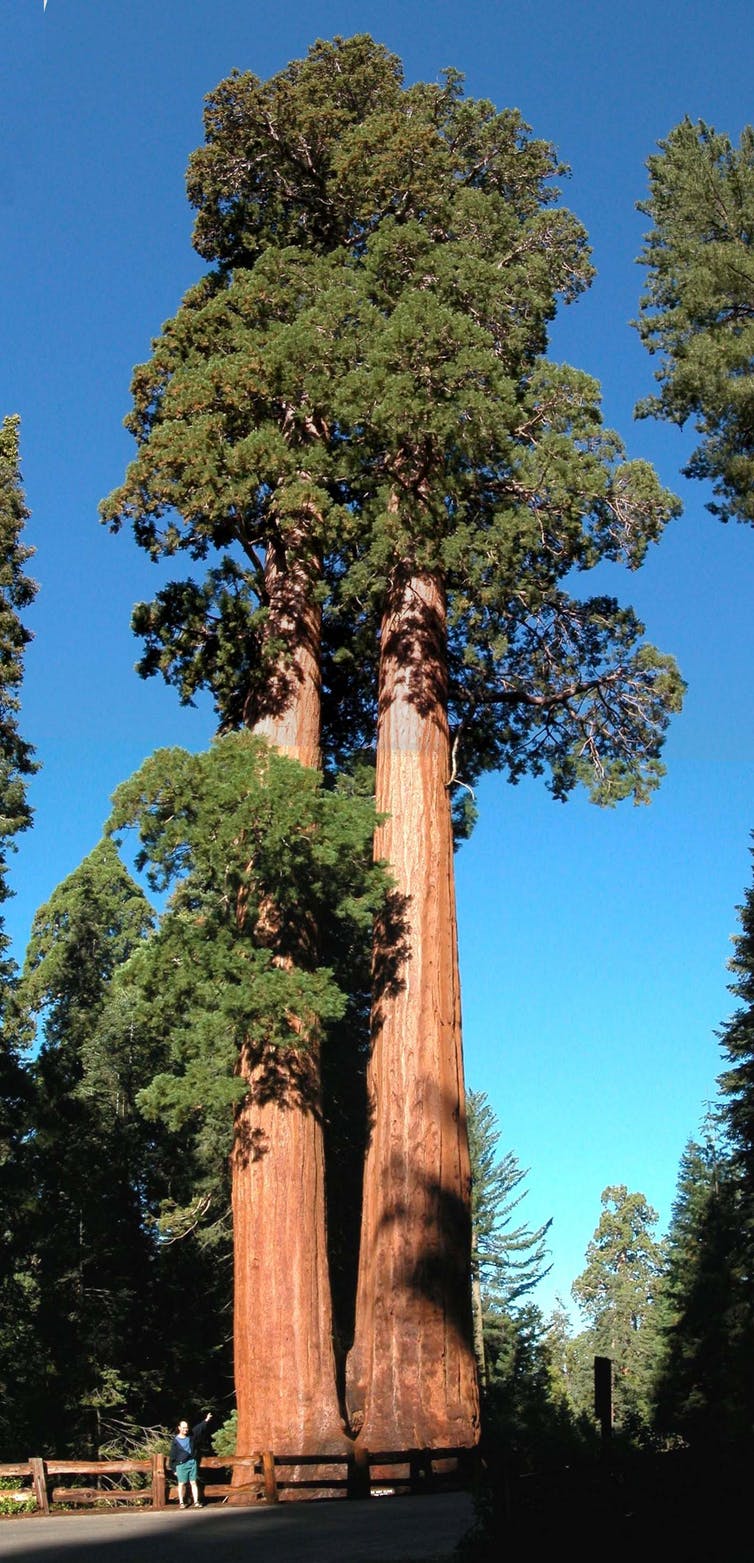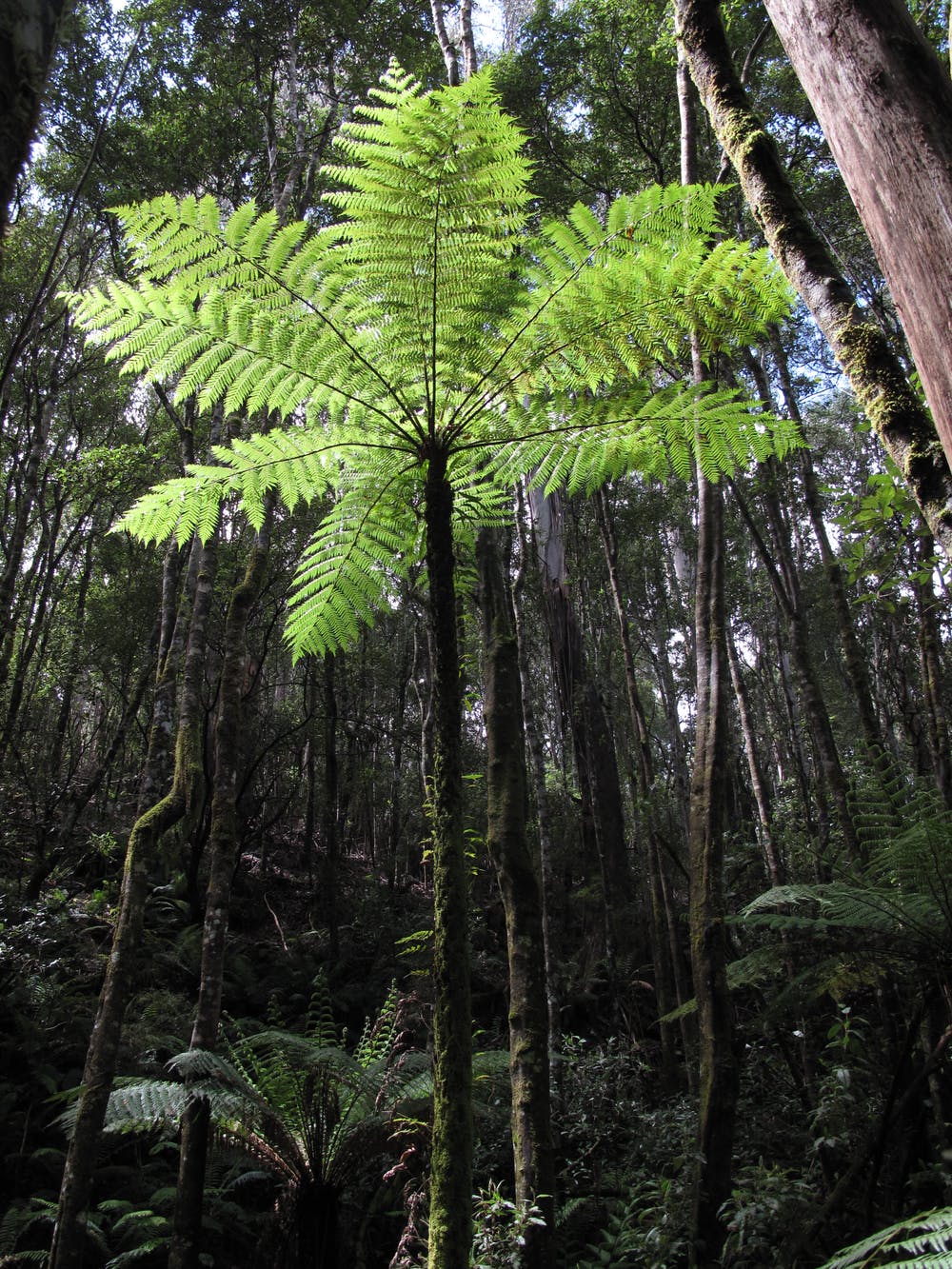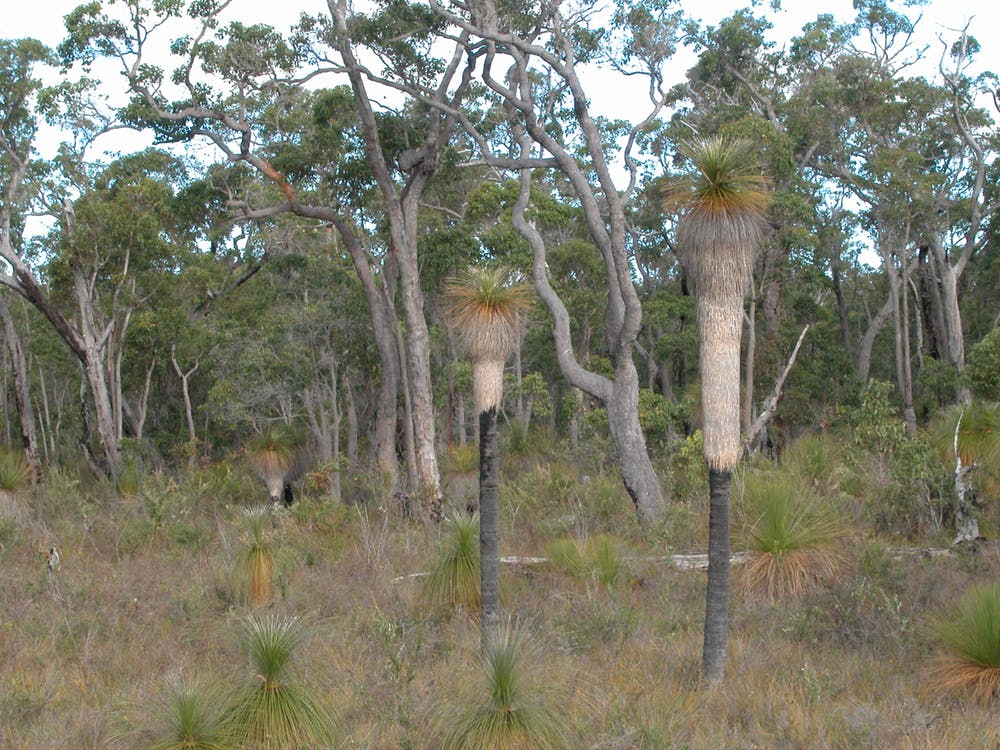April 29 - May 5, 2018: Issue 357
Curious Kids: Where Did Trees Come From?
April 26, 2018: The Conversation - answered by Greg Jordan, University of Tasmania and Matilda Brown, University of Tasmania
This is an article from Curious Kids, a series for children. The Conversation is asking kids to send in questions they’d like an expert to answer. All questions are welcome – serious, weird or wacky!
Where did the trees come from? - Grace, age 6, West Pymble.
Excellent question. It’s so good that we have to answer it in three parts.
The first part of the answer is that trees come from other trees!
Each tree starts as a dormant seed. That’s a fancy way of saying that the seed was asleep.
The seed starts to grow after it gets wet. It then can grow into a tree. If you want to know how this happens you can look at this article.
Trees make seeds, which can then grow into other trees. So each tree has a mother and a father, and the seeds are their babies.
Every seed is different
The second part of the answer is that not all seeds grow into trees. Some seeds grow into trees and other seeds grow into other kinds of plants. That’s because different kinds of plants make different kinds of seeds. The seeds of daisies can only grow into daisies, and the seeds of pine trees can only grow into new pine trees.
This is all because of an amazing chemical called DNA. DNA stands for deoxyribonucleic acid, but everyone just calls it DNA.
Read more: Explainer: Theory of evolution
DNA is like a set of instructions that tells the seed how to grow and what kind of plant to grow into. Every person, every plant, and every animal has its own DNA that is just a little bit different from the DNA of any other plant or animal. That means that DNA gives every person, every animal, and every plant their own special instructions.
When a tree makes a seed, it does a something really important. It puts some DNA into the seed. That DNA is almost the same as the DNA of the mother and father trees. That means that the seed will grow up into a tree of the same type as its mother and father.
Where did the first trees come from?
Each plant or animal has slightly different DNA from its parents. This is where we come to the third part of the answer: over long periods of time plants and animals can change, they evolve.
This might happen, for example, by a small plant making seeds with DNA that has instructions for growing bigger plants. Then those bigger plants do well and make more seeds. Some of these seeds have DNA with instructions for even bigger plants. This happens many times and eventually you can have big trees.
The very first plants on land were tiny. This was a very long time ago, about 470 million years ago. Then around 350 million years ago, many different kinds of small plants started evolving into trees. These made the first great forests of the world.

This is a drawing of what one of the first forests looked like. The trees are very different from most of the trees in our forests. Wikimedia
Since then, many different kinds of plants have evolved into trees. Here are some of them.
This is a giant sequoia - the biggest living thing on Earth. It is a type of tree called a conifer. Look how tall it is!

A giant sequoia. Greg Jordan
This one below is a tree fern. Most ferns are small, but some have evolved to become trees.

A tree fern. Greg Jordan
There are two very different kinds of trees in this next picture below. The two slender trees at the front are Kingia, which is a strange relative of palm trees. It lives in Western Australia. There are gum trees in the background as well.

Kingia and gum trees. Greg Jordan
We are so glad you are interested in trees. We really need to look after our trees because they help make clean air for us to breathe. Without trees, humans would be in a lot of trouble.
Hello, curious kids! Have you got a question you’d like an expert to answer? Ask an adult to send your question to us. They can:
* Email your question to curiouskids@theconversation.edu.au
* Tell us on Twitter by tagging @ConversationEDU with the hashtag #curiouskids, or
* Tell us on Facebook
Please tell us your name, age, and which city you live in. You can send an audio recording of your question too, if you want. Send as many questions as you like! We won’t be able to answer every question but we will do our best.
This article was published first in The Conversation's Curious Kids series of articles.